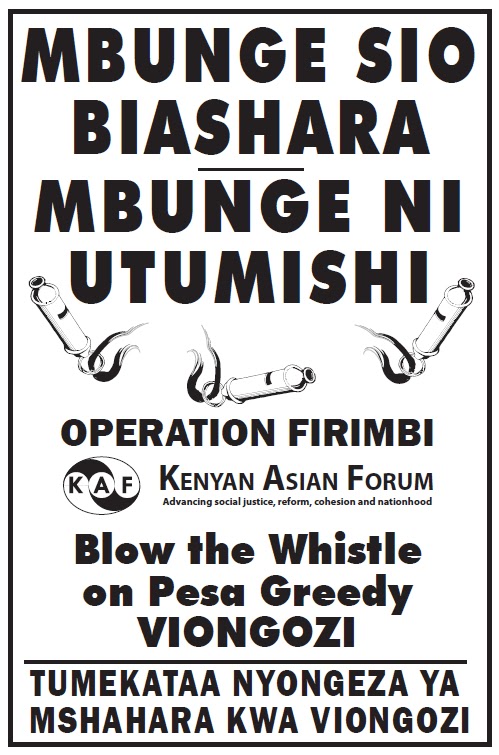New report say it's a matter of when and not if the lake, the largest desert lake in the world, is going to disappear if the ongoing Gibe III dam project is not halted
It is regarded by many anthropologists as the cradle of humankind, thanks to the abundance of hominid fossils.
But Lake Turkana could soon get into history for the wrong reasons as scientists and environmental experts warn that it could dry in the near future as a result of an hydroelectric project which is being constructed by the Ethiopian government in one of its major tributaries.
The lake, the largest desert lake in the world and listed as a Unesco World Heritage Site in 1997, sits astride the Kenya-Ethiopian border.
"This is a global disaster in waiting. Lake Turkana is going to dry up,” says leading archaeologist Richard Leakey. "It is a matter of when and not if Lake Turkana is going to dry up."
The lake, which is the source of livelihood for more than 3,000,000 indigenous pastoralist people in the region, could suffer following the construction of Gibe III dam on the River Omo which is the main source of the lake.
Lake Turkana gets 90 per cent of its water from the Omo which means filling the Gibe III dam’s reservoir could significantly reduce the lake’s inflow over a number of years.
The Gibe III dam is being built by an Italian company, Salini Construction, and a Chinese state-owned bank has approved funding for the project, while its export credit agency is financing the erection of transmission lines. In July 2012, the World Bank voted to approve $684 million to build a 1,000-kilometre long transmission major line to link Kenya to the controversial Gibe III dam. Clearly this demonstrates that both the World Bank and the Kenyan government failed to grasp the enormous and potentially catastrophic downstream socio-economic, ecological and political consequences of the Gibe III dam.
The dam has been the subject of a massive campaign by mainly western rights groups over what they say are negative environmental and social impacts against an estimated 500,000 people in Kenya.
Gibe III Dam is about half complete, and construction on the sugar plantations is just starting. Hydrologists are calling for a plan to ensure adequate river flows to support Lake Turkana (called “environmental flows”).
Jackie King, professor emeritus of the Institute of Water Studies at the University of Western Cape, says “It is not yet too late to complete a transboundary environmental flow assessment that will allow both countries to see the costs and benefits of a number of options for designing and operating the dam (including a no dam option). The two countries could then negotiate a future development pathway based on these options that both could accept. It would have to be done very soon, before the dam is completed.”
Omo river descends from the central Ethiopian plateau and meanders across Ethiopia's parched southwest before spilling into Lake Turkana.
The report, Lake Turkana and the Lower Omo – Hydrological Impacts of Major Dam and Irrigation Projects, published by the Africa Studies Centre at Oxford University, predicts the Ethiopian government’s Kuraz Sugar Project alone will cause Lake Turkana to drop by up to 22 metres. Much of the lake’s aquatic life will be destroyed, including fish stocks vital to the Turkana and other peoples living by the lake.
According to a report titled Humanitarian Catastrophe and Regional Armed Conflict Brewing in the Transborder Region of Ethiopia, Kenya and South Sudan by Dr Claudia J Carr, the construction of the dam would attract conflicts between communities living around the lake.
The report published by the Africa Resources Working Group concludes that 200,000 people in Ethiopia and 300,000 in Kenya will suffer irreversible impacts from the dam and plantations.
According to the ARWG report, a major review by the African Development Bank of the hydrological impacts of the Gibe III dam on Lake Turkana omitted any assessment of the dependence of the livelihoods of local communities on the lake’s resources. Moreover, the assessment by the Ethiopian government shows no regard for Kenya’s sovereignty over Lake Turkana’s northern shoreline zone and a significant portion of the Omo Delta.
Carr, associate professor at University of California at Berkeley, argues that no credible assessments of the environmental and social cross-border impacts of the dam have been conducted. The report charges that the assessments of the dam’s impact were fragmentary and riddled with major omissions, inaccuracies and even fabrications.
Many Turkana have turned to fishing. The lake is rich with about 40 different species, though only three are commercially harvested: tilapia, Nile perch and catfish.
And should the lake dry up, the community will be forced to look for other survival ways which could force them to go back to keeping livestock. "This could be the genesis of chaos," said Ikal Angelei of Friends of Lake Turkana.
"We are calling on the government of Kenya to respect the rights of its people and halt its involvement in power purchases from Gibe III Dam. We call on the bilateral agencies to recognise the destruction that the dam and large plantations will bring on Lake Turkana, and withdraw budget support for Ethiopia that will underwrite destructive infrastructure,” said Angelei, who is the founder of Friends of Lake Turkana and a 2012 recipient of the Goldman Environmental Prize.
Another study conducted by Dr Sean Avery and released by the African Study Centre reveals a much grimmer picture of the impact of the building of Gibe III Dam on the Omo River and associated large scale irrigation-dependent plantations in Ethiopia would have on the Lake Turkana and Lower Omo basins.
The report shows how Gibe's regulation of the flow of the Omo will alter the annual flood regime upon which the agro-pastoralists of the lower Omo depend for their livelihoods and how it will, coupled with the abstraction of Omo water for large-scale irrigation, alter the hydrological inflow patterns to Lake Turkana, directly impacting the ecology of the world's largest desert lake.
There has been international outcry on the project especially from scientists.
Leakey says it is unfortunate that the government has kept mum while watching Lake Turkana die, an area he has strong personal connections to. "I believe the Kenyan government has so far been silent on the potential impact on Lake Turkana."
Leakey discovered some of the earliest evidence of human evolution around the lake - discoveries that have prompted scientists to think of the region as the cradle of humankind.
Two years ago, the United Nations added its voice to the barrage of criticism on Ethiopia’s massive Gibe III hydropower project, calling for work to be suspended until the negative impacts of the dam have been determined.
The World Heritage Committee, which establishes sites to be listed as being of special cultural or physical significance, said the dam’s construction endangered the existence of Lake Turkana.
In a letter to the Ethiopian and Chinese governments after its annual meeting in November 2011, the committee underlined the importance of Lake Turkana as an outstanding research area for animal and plant communities.
David Hales, President of Second Nature and former Chair, Unesco World Heritage Committee, says issues raised must be addressed urgently. "It is time for the international community to pay serious attention to the impact on indigenous people in both Ethiopia and Kenya, and the potential loss of irreplaceable components of natural systems whose richness and uniqueness have been recognised as part of the common heritage of mankind through the World Heritage Convention," he says.
Despite the impacts to its own people and the lake, Kenya has agreed to purchase power from the dam, and the World Bank and African Development Bank have both agreed to fund the transmission line that will bring the dam’s electricity to Kenya.
The World Bank in July last year approved a Sh58 billion loan that Ethiopia and Kenya needed to build a 1,000-kilometre high-voltage power line from the controversial Gibe III dam to Kenya. Kenya will receive Sh37.5 billion while Ethiopia will receive Sh20.7 billion for the project. Once completed it would be the largest hydroelectric plant in Africa with a power output of about 1,870 Megawatts.
Researchers fear the project could kill Lake Turkana. Angry activists said the World Bank had sabotaged the rights of more than 300,000 Kenyans who directly depend on Lake Turkana.
According to the interconnection agreement that was signed between the two countries, a 1,100km long transmission line will be constructed, of which 400km will be in Ethiopia while the remainder across the border in Kenya.
This will include a line from Ethiopia’s Gilgel Gibe III to a substation in Wolayta Sodo, and from there to Longonot and Isinya.
International Rivers, a US-based campaign group, said the project may be one of Africa’s worst “development disasters” because of the harm it may cause people in Kenya.
Dr William Oweke Ojwang, assistant director of the Kenya Marine and Fisheries Research Institute, says the Omo–Lake Turkana ecosystem is a gift to our heritage and it would be suicidal for Kenya to ignore the impacts of these developments on this rich ecosystem. "Lake Turkana fisheries have immense socio-economic importance to the country and the region. It would be suicidal for Kenya to ignore the impacts of these developments on this rich ecosystem,” he says.
According to Alex Awiti, an ecosystems ecologist at Aga Khan University in Nairobi, the Gibbe III Dam will cause the decimation of large mammal populations on a trans-boundary scale owing to habitat loss. Wildlife populations of the Omo floodplain migrate seasonally into South Sudan. Wildlife on the Kenya side depends on the seasonally flooded areas around Lake Turkana.
The World Bank said in a statement it was convinced the project will not harm the environment. “It will expand access and lower the cost of electricity supply to homes and businesses across Kenya and help to reduce thermal power emissions in Kenya, a clear benefit to the region’s environment,” said Makhtar Diop, World Bank Vice President for the Africa Region.
International Rivers and Friends of Lake Turkana are calling for a halt to construction until there is a complete accounting of how the dam and irrigation projects will harm Lake Turkana, and a plan to ensure the lake does not suffer a hydrological collapse.




